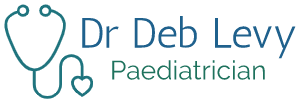Are eggs healthy?
Yes! Eggs used to get a bad rap because of their high cholesterol content. Thankfully there was an abrupt turn about in advice given by our national heart foundation and other international regulatory bodies. All evidence now points to the same message:
‘eat eggs but limit saturated fats, trans fats and sugar’.
It’s like music to my ears…
So what makes eggs so good for us?
Eggs are a wonderful source of protein and iron both of which are vital for active and growing bodies. They also contain healthy omega 3 fats and zero trans fats (the really bad fat). The cholesterol that was said to be bad is actually needed to build healthy cells, make hormones and help our nervous system and brain work properly. Geeky but really important stuff!
Eggs are packed full of other nutrients and vitamins including:
Iodine: Essential for thyroid hormone production.
Choline: Helps with memory, learning, brain and cell growth.
Vitamin A: Important for healthy eyes, skin and bones. Also helps strengthen our immune system
Vitamin D: Eggs are one of the best food sources of vitamin D. Vitamin D is a part of many metabolic processes including our immunity and building healthy bones.
Vitamin E: Is a wonderful antioxidant helping protect cells in our body.
B vitamins (incl B6 & B12): Help with many functions including healthy blood cells, a healthy nervous system and good mood.
An egg is naturally low in sugar which means no energy slumps after a sugary or processed breakfast cereal. I find that kids who misbehave in school especially around midmorning are often just tired or experiencing a sugar slump.
By the way, most of the goodness is in the yolk so ditch that silly craze of scrambled egg whites and get your kids eating the yummy yolks. Eggs are also great for pregnant ladies and some cultures encourage at least half a dozen per day! Although I don’t feel comfortable recommending this the message is still the same. Eggs are good for your growing bub.
Now that I’ve sung the praises of the humble egg, let’s get into the practicalities.
What’s the best age to start eating eggs?
I recommend eggs (initially the yolk) be one of your baby’s first foods. This is because it is nutrient dense and especially because of it’s high iron content. All exclusively breastfed babies are at risk of iron deficiency. It’s never really made sense to me though why babies’ first foods should be a food that’s had iron artificially added to it (iron fortified cereal). Why not just give iron rich foods?
Okay, so the iron and other nutrients are good for young babies, but isn’t there a risk of allergy?
Egg is definitely a high allergy (allergenic) food with close to 2% of young children showing some type of reaction. Research has shown us though, that earlier introduction of allergenic foods actually decreases your child's risk of developing an allergy. It’s therefore best to introduce foods like eggs, nuts, dairy, soy and wheat earlier rather than later. If there is a family history of severe allergies or you have any concerns please speak with your health care provider first.
How many eggs should children eat?
In my opinion it’s fine to have eggs almost every day. My usual recommendation is for around 6/week. This is to ensure good variety of foods as opposed to focusing on limiting eggs. I’m a big fan of rotating foods to prevent food boredom.
Eggs can be prepared in any way you like. Bearing in mind that the oils and other ingredients you use should be healthy choices. See my blog on ‘eggy’ recipe ideas and which eggs are the best eggs.
So now you can see why I absolutely love eggs. The humble little egg is easy to prepare, versatile and nutrient dense with healthy fats, protein and at least 13 essential nutrients. They’re a powerhouse for growing bodies! I hope your children will love them as much as I do.


